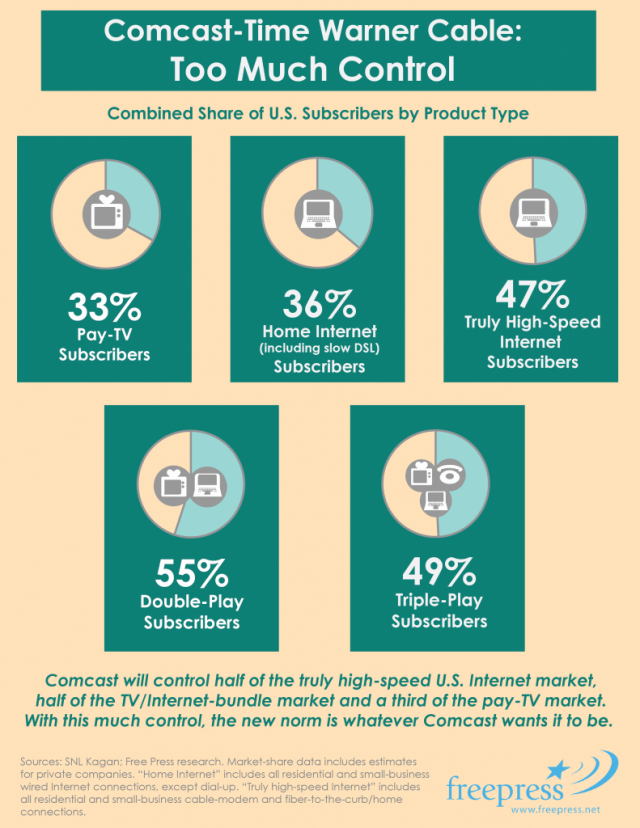
Comcast Cable out? No refunds, but enjoy a free movie on us if and when your service is restored.
Colorado Comcast customers suffering service outages due to defective cable company equipment are being told they are not entitled to service credits for extended outages and instead are now offered vouchers for discounts off pay-per-view events and movies.
Janice Howard sent word to Stop the Cap! customers are still annoyed with Comcast after a major outage knocked out service for more than 100,000 customers last fall because of a “router problem.”
“The outage hit right in the middle of a Broncos’ game against the Cowboys — a must-see event for any football fan in this state,” Howard recalls. “The reason I remember this now is the local paper has started a sort of movement encouraging residents to cancel Comcast service, if only because of their arrogant attitude during and after the outage, and the fact many of us just had another one.”
Howard called Comcast at the time looking for a credit on her next bill for the outage, but Comcast refused her and tens of thousands of others.
“I will never forget the surly Comcast representative who told me, and I can repeat it word for word because I recorded the call, ‘We don’t do no refunds for service outages anymore,'” said Howard. “Everyone who asked, including me, got nothing more than a pay-per-view movie voucher, which does no good if you cancel service.”
Enterprise columnist Armand Lobato confirmed that, and the fact his family finally “fired” Comcast this month:
Yes, Comcast is fired. We took a page from young adults’ playbook and canceled the phone. It seems nobody younger than 40 these days owns a land line, why should we? Even our smart friend Barbara said the only reason she hangs onto the land line is so she can use it to locate her misplaced cell phone.
No more. And no more TV either.
That was the tough one for me. But come to think of it, I don’t miss scanning through the scores of channels I never watched to get to the one I did. Nor do I miss mostly contrived reality shows or the endless blocks of foreign language stations for which we needlessly paid. No mas, Comcast.
With few exceptions, I find I don’t miss cable TV that much. We both like to read and with warmer weather, we’re outside more anyway, which it makes it easier to avoid the boob tube altogether.
I sure don’t miss the insanely ballooned, end of the month statements. Comcast’s bills, you have to admit, started to rival those hokey emails from the fictitious Zaire lawyer who promises the world if only you agree to hand over all your financials. Uh-huh.
For the record, Comcast’s official refund policy for most customers is that they are entitled to credit for some service interruptions exceeding 24 consecutive hours if Comcast is in the mood.
Howard has sympathy for Time Warner Cable customers about to be absorbed into the Comcast family.
“I feel for you because we have family back east who have Time Warner and they hate it, but we’ve always been able to prove Comcast has them beat when it comes to bad service, high prices, and customer service only a mother could love, assuming it was her child answering the phone.”


 Subscribe
Subscribe Comcast is using an offline console game that misrepresents the speed and performance of its Internet service in its latest advertising.
Comcast is using an offline console game that misrepresents the speed and performance of its Internet service in its latest advertising. The New York Times
The New York Times 
 Lobbyists like Gray used astroturf tactics to mobilize various unaffiliated non-profit groups to write glowing letters in support of consolidating Sirius and XM Radio, usually in return for generous contributions. It is likely to be more of the same with this merger.
Lobbyists like Gray used astroturf tactics to mobilize various unaffiliated non-profit groups to write glowing letters in support of consolidating Sirius and XM Radio, usually in return for generous contributions. It is likely to be more of the same with this merger.
